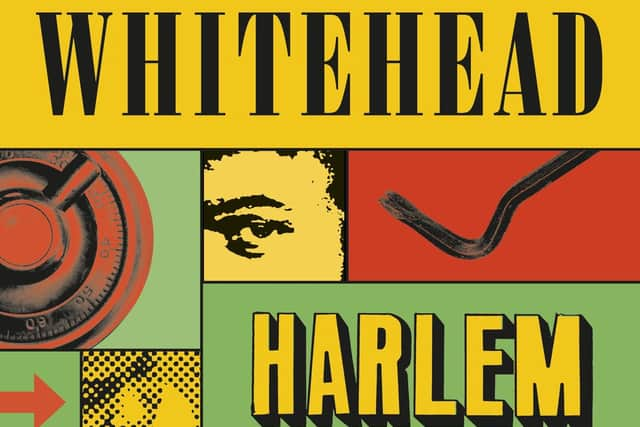Book review: Harlem Shuffle, by Colson Whitehead


There is something delightfully unpredictable about the work of Colson Whitehead. He has written novels about historical myths (John Henry Days), an avant-garde novel about capitalism and language (Apex Hides The Hurt), a cracking zombie novel (Zone One) and has the distinction of winning the Pulitzer twice, as well as the National Book Award, the Orwell Prize and the Arthur C Clarke Award. Let us leave it as he has good form. His new novel, Harlem Shuffle, is a work that has a certain joy and a deep melancholy. Set from 1959 to 1964, it is a novel full of zest and zing and zap, but profoundly serious. It is a book that ought to niggle consciences. Whitehead, along with writers such as Perceval Everett, uses genre techniques to address pressing questions.
The novel’s protagonist is Ray Carney, the owner of a furniture store and referred to by a white cop as “the biggest nobody in Harlem”. But Ray’s father was a crook, his mother died young and his cousin with whom he grew up inveigles him into some wrong side of the tracks work. Ray is a decent family man, with a wife and children, except when he has to be not. Ray has sometimes been involved in side-lines, the “gently used” stock, and is used to “the churn”. “There was a natural flow of goods in and out and through people’s lives, a churn of property, and Ray Carney facilitated that churn”. A little mild fencing, a blind eye, a white lie: it all becomes different when Cousin Freddie comes asking for a favour. “It’s none of my business”, Ray says, just before it very much becomes his business. There is a heist in the offing, and it doesn’t end well.
Advertisement
Hide AdLet us just say that in good thriller style nothing stays hidden. This is a very good thriller and so much more than a thriller. As with Colson’s previous work, this deals with race. But he does not deal with it in a simple, dichotomous way. There is the overt racism of the police, and as the novel progresses we are taken into the Harlem Riots. But, there is an internal hierarchy as well, with the respectable but corrupt in the “Dumas Club” (a reference to Alexandre Dumas and his heritage) and the crooked but honourable. Different gangs of men have differing agendas, and many of the older criminals detest the young dope-peddling types.


Carney at one point thinks about how there was “a midnight him and the daytime him”, created to keep “the two sides of him separate”. But unlike Dr Jekyll or Deacon Brodie, he understands that “maybe he’d invented a separation where none existed, when it was all him and always had been”. In a way that is a summary of the novel’s ethical complexity; a realisation that the good and the bad are not opposing sides in a righteous war.
The subtlety of Carney’s character is key to this novel. External either/or-s plague him. The competing claims of loyalty and propriety, aspiration and anonymity, grift and grit run through the book on every level. It makes the reader wonder the whole time about the extent of sympathy to extend. This is a rare quality, to keep you double-guessing about how we are going to judge the character. It is also a moral proposition, which is rare in contemporary fiction.
One thing which struck me, over and above the wise-crack lines (which are many and funny: such as one goon telling the amiable Carney about his boss “I’ve seen him cut a nigger’s eyelids off for blinking too loud”) was the way in which Whitehead deals with the world of work. There are, obviously, crooks and cops and hookers and pornographers and snobs, but Whitehead manages to make the world of Carney’s work surprisingly interesting. He notices if a bed is a Burlington Hall, or if someone takes up a Headley ottoman. He hopes to become the first black man to be licenced to sell Collins-Hathaway. But it is also the cigarette brands, Formica, the shoe-shine shops, the restaurants, the bars that he, in a way, anatomises: along with the changing nature of property development in the area. During the riots he does two things. He places a note saying the business is black owned, and realises that looters don’t tend to take three piece suites.
This is a technically extremely accomplished novel. The use of the future tense, intruding, as in “he would never again”, “in due course, the stupidity of this argument made itself evident” and “what would they call” is a tug on the reader, asking us to tip-toe to an unrevealed future. The heat-wave atmosphere cleverly evokes the tinder box to come. It would be easy to say this is a Black Lives Matter novel, but Whitehead’s whole career has been about hidden histories, endemic violence and the paradoxes around the discourse on race. But his work has always been about the long history of racism, and not just the present moment. This riotous, sentimental and brilliant novel feels like another piece of the jigsaw being placed. Or a trump card being laid down.
Harlem Shuffle, by Colson Whitehead, Fleet, £16.99
A message from the Editor:
Thank you for reading this article. We're more reliant on your support than ever as the shift in consumer habits brought about by coronavirus impacts our advertisers.
If you haven't already, please consider supporting our trusted, fact-checked journalism by taking out a digital subscription at https://www.scotsman.com/subscriptions